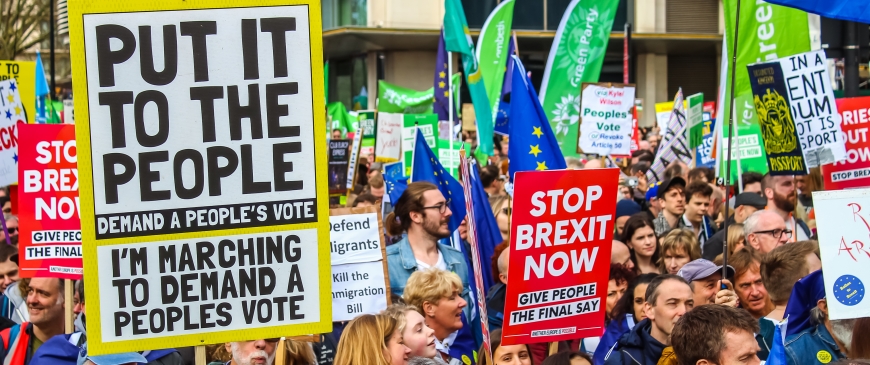
Remainers, take note: Much of Europe just wants to excise the British cancer
The mood in Brussels is pessimistic. Most of those closely involved in the Brexit talks think the likeliest outcome is for the UK to leave without a deal.There is also tremendous frustration with what EU officials see as the incompetence, ignorance and irresponsibility of swaths of the British political class. Over the past three years much of the goodwill that people held towards the UK has evaporated.
The EU expects no deal because it does not trust British politicians not to screw up. There is not much faith that “indicative votes” among MPs will produce a coherent way forward. “We don’t see the transmission mechanism that forces the executive to bend to parliament’s will,” said one EU official. “We cannot negotiate with a parliament.”
Another source of Brussels’ pessimism is the apparent inability of British politicians – including Labour’s leaders – to recognise how much the EU cares about the European elections. Assuming that parliament does not pass Theresa May’s deal, the EU will not extend article 50 – and thus prevent a no-deal Brexit on 12 April – unless the UK agrees to take part in European elections.
If Britain remained a member while skipping the elections, not only British citizens but those from other member-states living in the UK would be disenfranchised. Somebody would go to the European court of justice, arguing that the parliament was improperly constituted and that its decisions – such as the appointment of the new European commission – were flawed. Many governments would rather the UK left without a deal than breach treaty provisions on elections.
The growing talk in London of a general election disturbs Brussels. In the midst of a confusing general election campaign, will there be an executive capable of requesting an extension of article 50 and organising European elections? And what if the outcome is a government led by someone like Boris Johnson, which picks fights with the EU in order to provoke a no-deal situation, or messes up the negotiation of the future relationship?
However fed up they are with the British, most EU governments hope to avoid no deal, but they differ over how far they should go to avoid it. Those member states closest to the UK – Germany, the Netherlands, Belgium, France and above all Ireland – would take the biggest economic hit. And some EU leaders understand that no deal would damage the EU’s international standing.
There are tensions between Germany and France. Angela Merkel fears the geopolitical consequences of an estrangement between the UK and the EU27; it would weaken the west just when it was facing severe challenges from illiberal forces in Russia, China and the US. The Germans worry that an acrimonious Brexit would preclude a close future relationship between the British and the EU. The French, uniquely among the 27, are ambivalent over Brexit, seeing opportunities as well as costs. Emmanuel Macron is focused on his European election battle against Marine Le Pen and fears that she will gain if Brexit lingers unresolved. He wants to demonstrate that leaving the EU carries significant costs.
There is also some tension between Brussels and Dublin, because the Irish government has not spelled out what would happen at their border with Northern Ireland in the event of no deal. According to one Brussels official: “If the Irish do not introduce checks, the French and others will insist on controls between the continent and Ireland.” However, both Dublin and the commission agree that the way around this difficulty is for the EU to refuse to talk to the British about measures to mitigate no deal unless they adopt something like the Irish backstop (in addition to paying the money they owe and protecting citizens’ rights).
Remainers should not assume that everyone in the EU wants another British referendum. Many senior figures worry that if the UK prevaricates or stays it will distract the EU from other pressing challenges, contaminate European politics with its weird Eurosceptic attitudes and block further integration.
Key officials despair at the inability of many leading British commentators and politicians to learn about how the EU works or what it wants from the negotiations. For example, senior MPs such as Nicky Morgan and Damian Green have wasted everyone’s time by backing the “Malthouse compromise” – whereby the UK would reject the withdrawal agreement but ask for a three-year transition, to mitigate the worst effects of no deal – although it is clearly incompatible with the EU’s objectives.
Donald Tusk, the European council president, is at one end of the spectrum in arguing that doors should be left open to the UK, lest it reconsider Brexit. The Dutch, Germans, Irish, Poles and Swedes lean in that direction. But many other governments, and senior figures in the commission, are keen to excise the British cancer from the European body politic.
Charles Grant is director of the Centre for European Reform.
